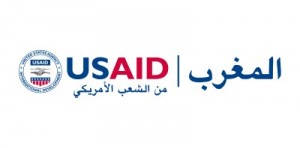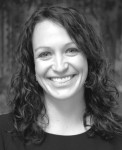Updated
Happy Anniversary, USAID Morocco! – Caitlin Dearing Scott
Caitlin Dearing Scott
March 30 2017
This Sunday is the 60th anniversary of the United States Agency for International Development’s work in Morocco! USAID officially launched its Morocco programs on April 2, 1957, when the two countries signed an agreement for the US to provide economic and technical assistance. Today, USAID Morocco is focused on advancing Moroccan initiatives for peaceful reform by targeting the following development objectives:
- Enhancing Youth Employability
- Increasing Civic Participation in Governance
- Enhancing Education Attainment at the Primary Level
Here is a closer look at some of USAID’s current programming, which continues USAID’s longstanding work to advance political and economic development in the country.
Enhancing Youth Employability
USAID works with public and private sector partners to enhance economic opportunities for Moroccan youth.
In 2015, USAID launched a program to assist “young people’s transition from education to employment” through the creation of Career Centers in key metropolitan areas. The Career Centers, in Casablanca, Marrakesh, and Tangiers, provide career services in both higher and vocational education institutions. Services include work readiness training, networking, and a virtual career center that provides on-line access for all Moroccans. For more on the Career Centers, check out this video.
Another USAID program, the Workforce Training Academy, provides specific vocational training to meet the needs of Volvo Group’s operations in Africa for drivers, technicians, and operations. In partnership with Volvo, UNIDO, the OCP Foundation, and the Moroccan government, the specialized academy is training Moroccan, Ivorian, and Senegalese students, highlighting Morocco’s key role in spurring economic development throughout the region.
Increasing Civic Participation in Governance
USAID’s democracy and governance efforts focus on helping political parties, government entities, and civil society “build their capacities, facilitate citizen participation, and ensure sustainable participatory governance.” Several programs focus on “addressing the challenges of marginalized youth by building on the capacity of relevant local and national partners to work with at-risk youth and promote their engagement in their communities.”
 The Favorable Opportunities to Reinforce Self-Advancement for Today’s Youth (FORSATY) program, launched in 2012, works to increase the social and economic inclusion of at-risk youth living in marginalized neighborhoods in order to prevent youth delinquency and reduce recidivism. Activities range from education and vocational training to improving the capacity of public and NGO youth-serving organizations. According to a mid-term evaluation completed in February 2016, FORSATY is on track to reach its objectives, having already improved the lives of over 12,000 marginalized youth. One such success story is that of Najlae Lachkar, a girl who dreamed of being an auto mechanic despite the objections of her family. In 2014, she and her sister enrolled in a USAID-supported auto mechanic training program at her neighborhood training center where they learned both the technical know-how and soft skills necessary to find employment. Lachkar is now interning at a local auto garage and one day hopes to open her own business.
The Favorable Opportunities to Reinforce Self-Advancement for Today’s Youth (FORSATY) program, launched in 2012, works to increase the social and economic inclusion of at-risk youth living in marginalized neighborhoods in order to prevent youth delinquency and reduce recidivism. Activities range from education and vocational training to improving the capacity of public and NGO youth-serving organizations. According to a mid-term evaluation completed in February 2016, FORSATY is on track to reach its objectives, having already improved the lives of over 12,000 marginalized youth. One such success story is that of Najlae Lachkar, a girl who dreamed of being an auto mechanic despite the objections of her family. In 2014, she and her sister enrolled in a USAID-supported auto mechanic training program at her neighborhood training center where they learned both the technical know-how and soft skills necessary to find employment. Lachkar is now interning at a local auto garage and one day hopes to open her own business.
The Community Oriented Policing Activity (COPA) program works to build trust between citizens, local police, and community leaders to improve community-oriented policing and citizen-focused security. The project includes strengthening community capacity to resolve crime and safety issues; training police commanders in crime prevention; and facilitating joint activities between police-citizen “Core Teams.”
Enhancing Education Attainment at the Primary Level
USAID supports the Moroccan government in its ambitious reform program to increase access to and improve the quality of education by targeting early-grade reading and teacher capacity.
The Reading for Success program “is designed to develop and test the most effective approaches for strengthening children’s Arabic reading skills in targeted primary schools.” Activities include developing and testing Arabic reading methods, developing training guides and reading lessons for teachers, and reducing summer learning loss by supporting civil society summer reading programs. Since 2016, USAID has taught an innovative approach to reading to 5,737 first grade students and trained 181 teachers in the new method.
USAID is also in the process of developing reading software that “bridges the gap between Moroccan Sign Language and Modern Standard Arabic so deaf and hard of hearing students can learn to read” through the “Reading for success-improving deaf children’s reading through technology” (IDCRT) program.
After 60 years, USAID continues to provide invaluable programing to support reform and improve living standards in Morocco.
For more on what USAID is accomplishing in Morocco, including personal stories from those positively impacted by USAID programming, check out the USAID-Morocco Facebook page.
